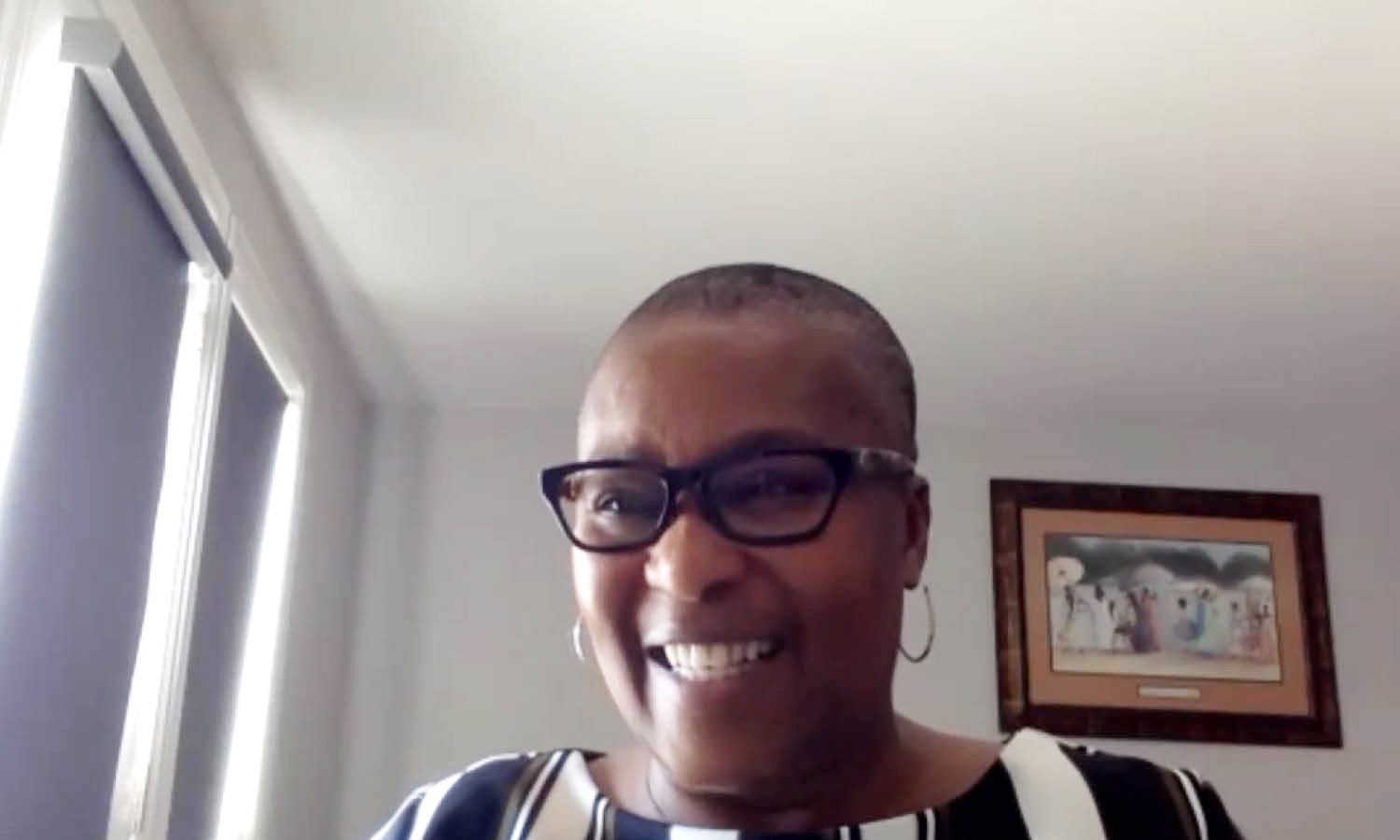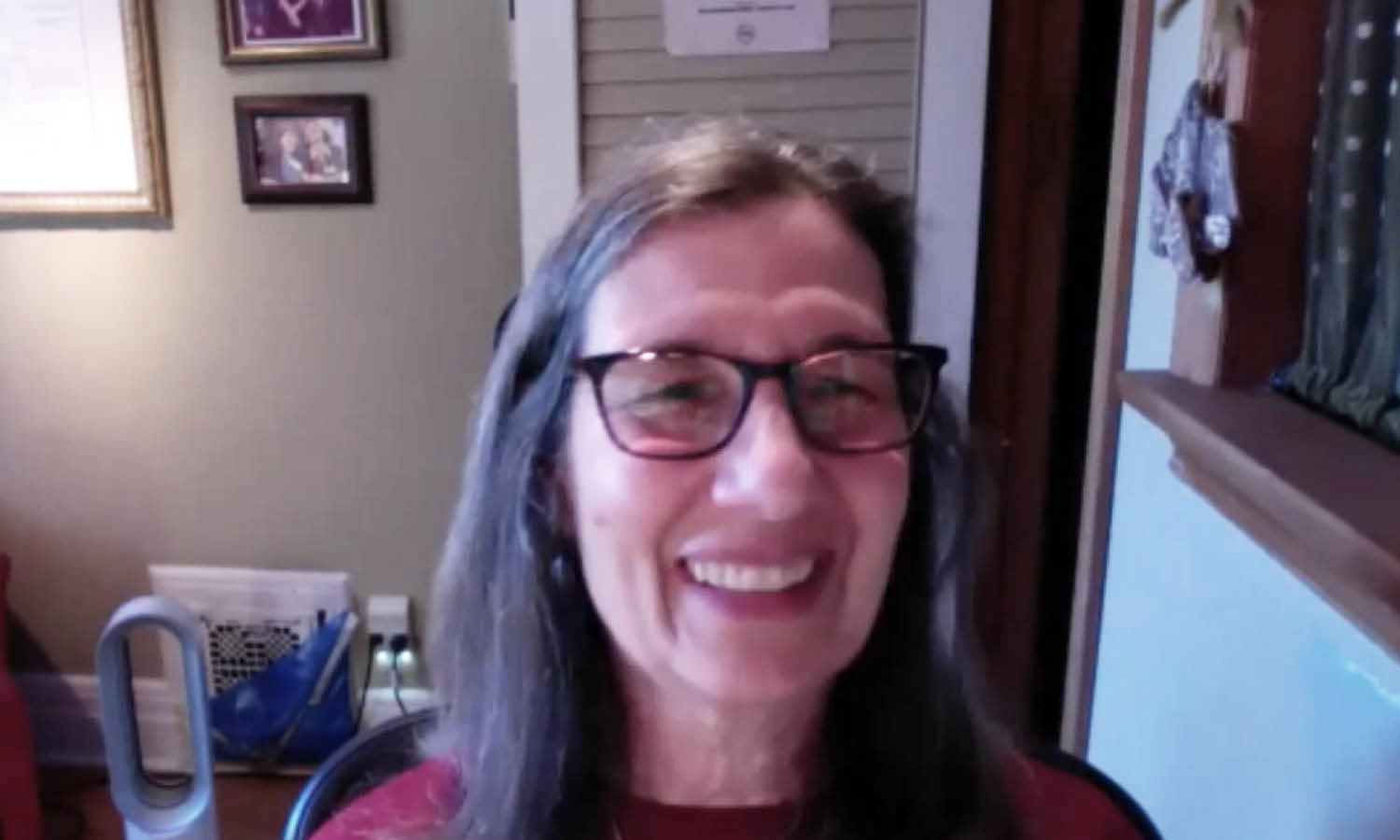Stella’s Place Before and Beyond the Pandemic

On February 17, 2021 Stella’s Place hosted a virtual open house, Review and Reimagine for our community. It was an opportunity to meet our new Executive Director, Wangari Muriuki, and learn about our 2019/2020 Impact Report. The event also recognized that this month is African/Black History Month—a time to come together to recognize and celebrate the excellence and accomplishments of the Black community.
Wangari’s opening message centred on two four-letter words: Hope and Bold. As we enter into the second year of the pandemic, and our eighth year of Stella’s Place, the message couldn’t ring more true.

“We are hopeful and as an organization we are bold. I don’t think this is a new page for Stella’s Place. This organization has built itself on hope for the young people and has been bold in delivering services that others couldn’t.”

The overarching message about our impact, delivered by Nzinga Walker, Director of Program Operations, is that Stella’s Place continues to help young adults make significant increases in resiliency and self-efficiency, coping, self advocacy, and readiness for change while also seeing a decrease in depression, suicidal ideation, and misuse of substances.

BeanBagChat has been a heavily-relied upon service for young people in the pandemic. Our usage has increased 300%. Peer Initiatives Manager, Allison Dunning, shared that texting with Peer Supporters has been an effective way for young people to get support, especially considering talking on the phone or through video is difficult for many young adults who live at home or with roommates.
“We noticed that this app is especially beneficial to the population that we serve. Young folks like texting, we know that. This app allows them to connect with Stella’s Place staff in a way that’s really comfortable for them.”
Khalil Dorival joined the panel from his car, in the process of delivering food hampers to his community. In Kahlil’s current position as a Peer Mentor within the Community Healing Project, he helps deliver Stella’s Place’s Peer Support Training in marginalized communities. Khalil shared some of his experiences and some mental health tips, like the importance of checking in with each other.

“For the parents that are here, I am a young person, and I think the most helpful thing is to do a check in on people. Like “how’s your heart?” and “how’s your mental health, how is your well being?” The conversation is going to shift, to where someone can really express how they truly feel. We put up this wall and we don’t want to talk about it because it’s very sensitive. Make sure that you are having this conversation.”
When thinking about our current situation in the pandemic, Khalil urges us all to help one another.
“Stop working in silos. Stop working individually. It’s about us coming together and figuring out—how can we pull on each other’s resources in order to meet the needs of young people? They say that young people are the future, but I really think that they are the ‘now’. It’s time for them to be involved in everything that we do.”

Founder and Board Chair Donna Green closed the meeting in thanks to all the donors and volunteers who help make it possible for Stella’s Place to continue offering critical support for young people. She shared, “I want to thank everyone today for making it all happen for us, for contributing in all different kinds of ways, in knowledge and in treasure.”
Stay tuned for our next event!
Questions Answered During the Event
Q: I am most concerned about social drop-ins such as studios and/or thematic chats. The social isolation for youth with mental health concerns is the hardest aspect of the pandemic. My daughter has access to directed therapists, but she misses hanging out with people and is lonely.
Answered by Allison: One of the biggest challenges that young people are facing right now is the feeling of social isolation. To respond to that we have adapted a lot of our programs to an online environment such as our fitness, yoga and individual peer support programs. We are developing 3 new programs that will also speak to that need of connection.
One of these is a Peer Support BIPOC group where folks can connect with Peer Supporters to talk about challenges going on and to receive shared coping strategies, validation and compassion.
Similarly, we are also working on a virtual café program, which will be a replication of our in-person café space. Folks will be able to come online to hangout, play games, meet our staff and learn more about Stella’s Place.
Lastly, we are also in the process of designing a Wellness Peer Program. This will be a group facilitated by 2 Peer Supporters that will give an introduction to self care and maintaining their own well being, with a strong emphasis on shared community space. It will also cover trauma, window of tolerance, emotional dysregulation, and skills and strategies for those things.
Q: I notice that suicidality is not one of the characteristics of your client profiles. Is that because you refer them elsewhere? If so, what percentage of inquiries would that represent? It would be helpful to understand who is best suited for Stella’s Place services, and who is better served elsewhere (not that there are many other places to go!!).
Answered by Nzinga: I’m happy to report that Stella’s Place does indeed provide services for people with active suicidal thoughts. What we saw last year was 67% of our participants at intake noted feelings of suicidality. We ran a program last year called Skills for Safer Living, which supported individuals who were experiencing suicidal thoughts or at some point engaged in a suicide attempt.
Q: Do you publish a detailed client outcome report? For how long do you follow clients after they complete their program at Stella’s Place?
Answered by Wangari: We do have a very robust internal client outcome report, that is produced annually. But a piece that we don’t have but would love to be able to do is to follow anybody who accesses our services for a period of 5 years after.

